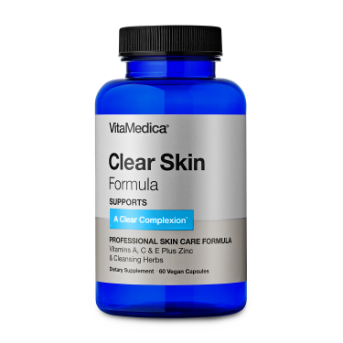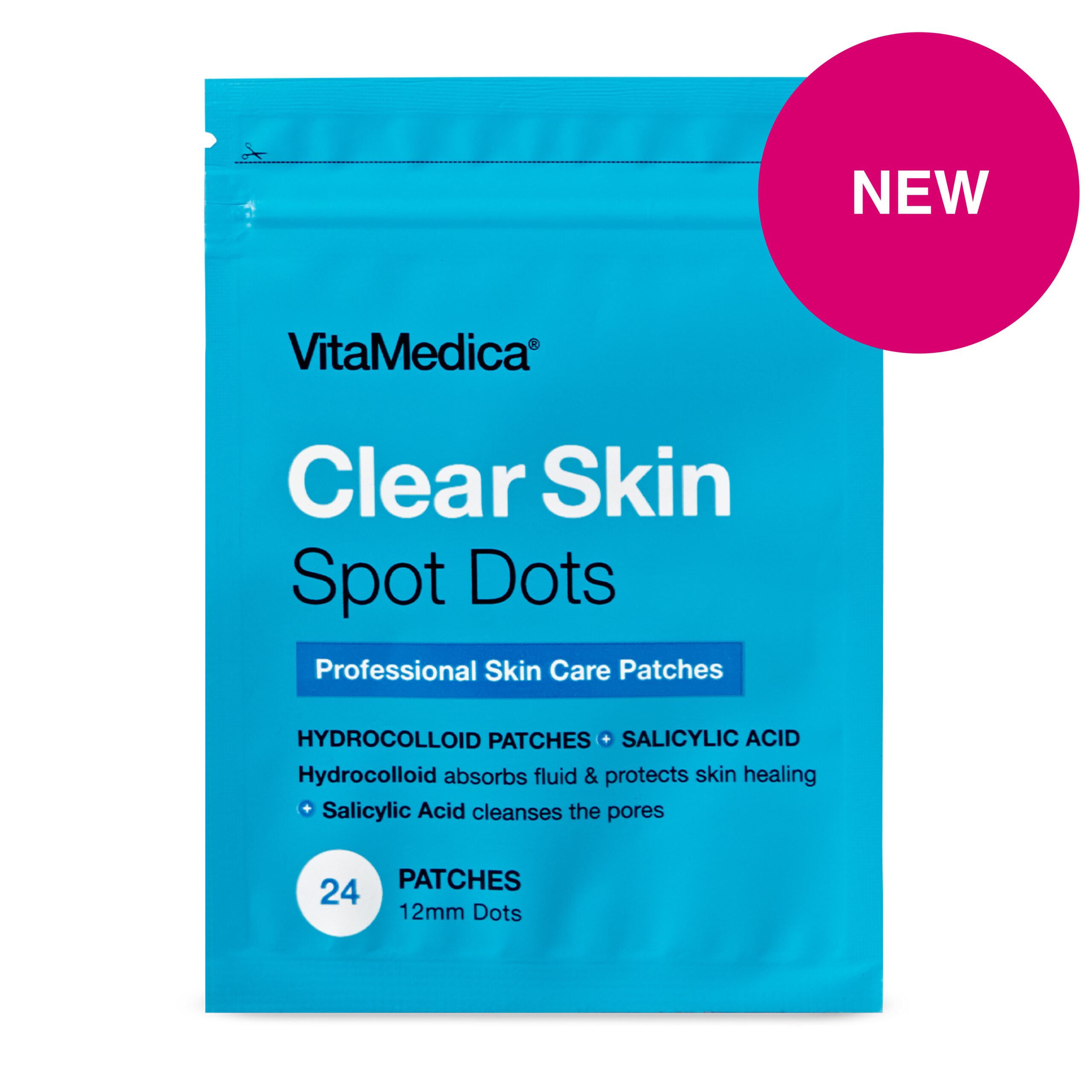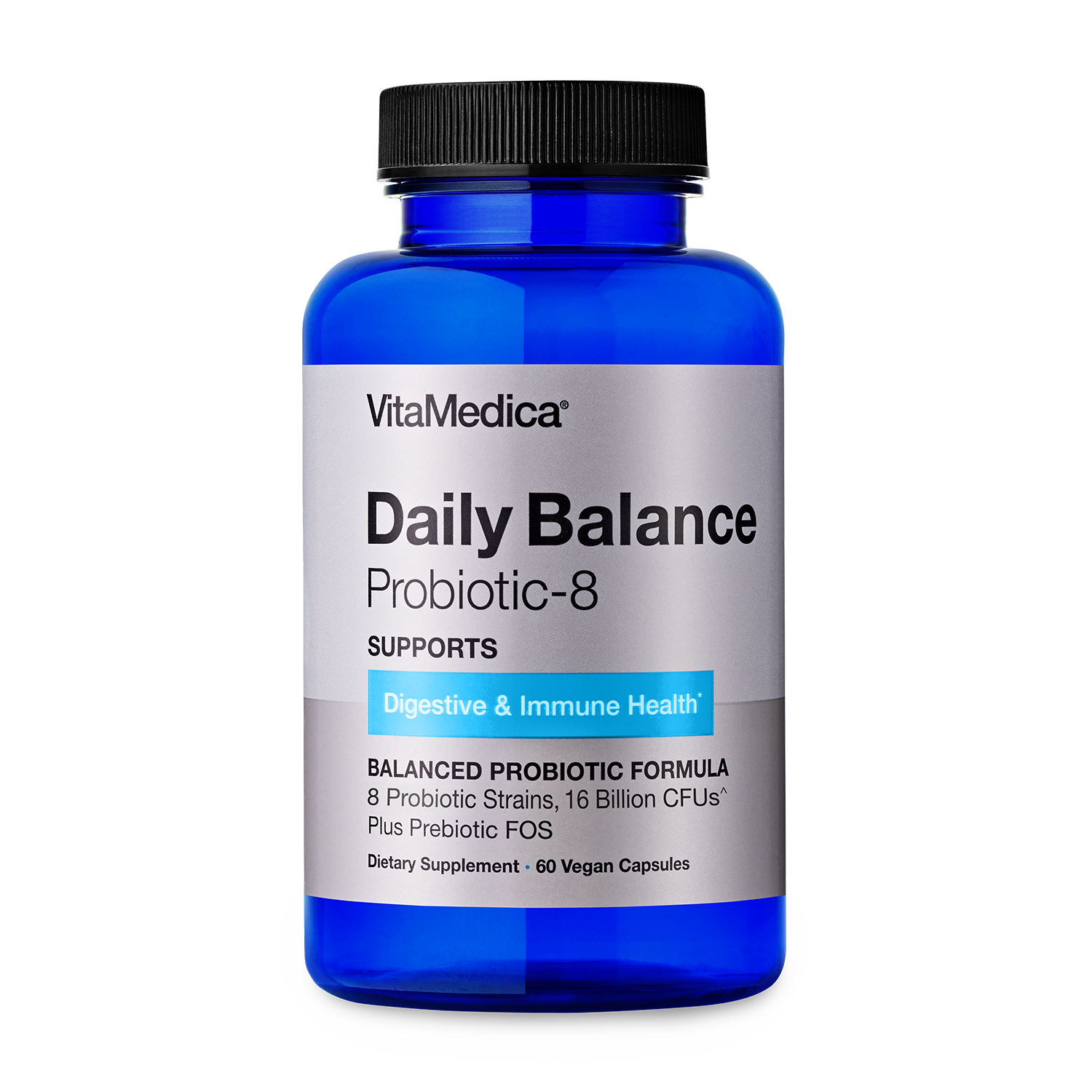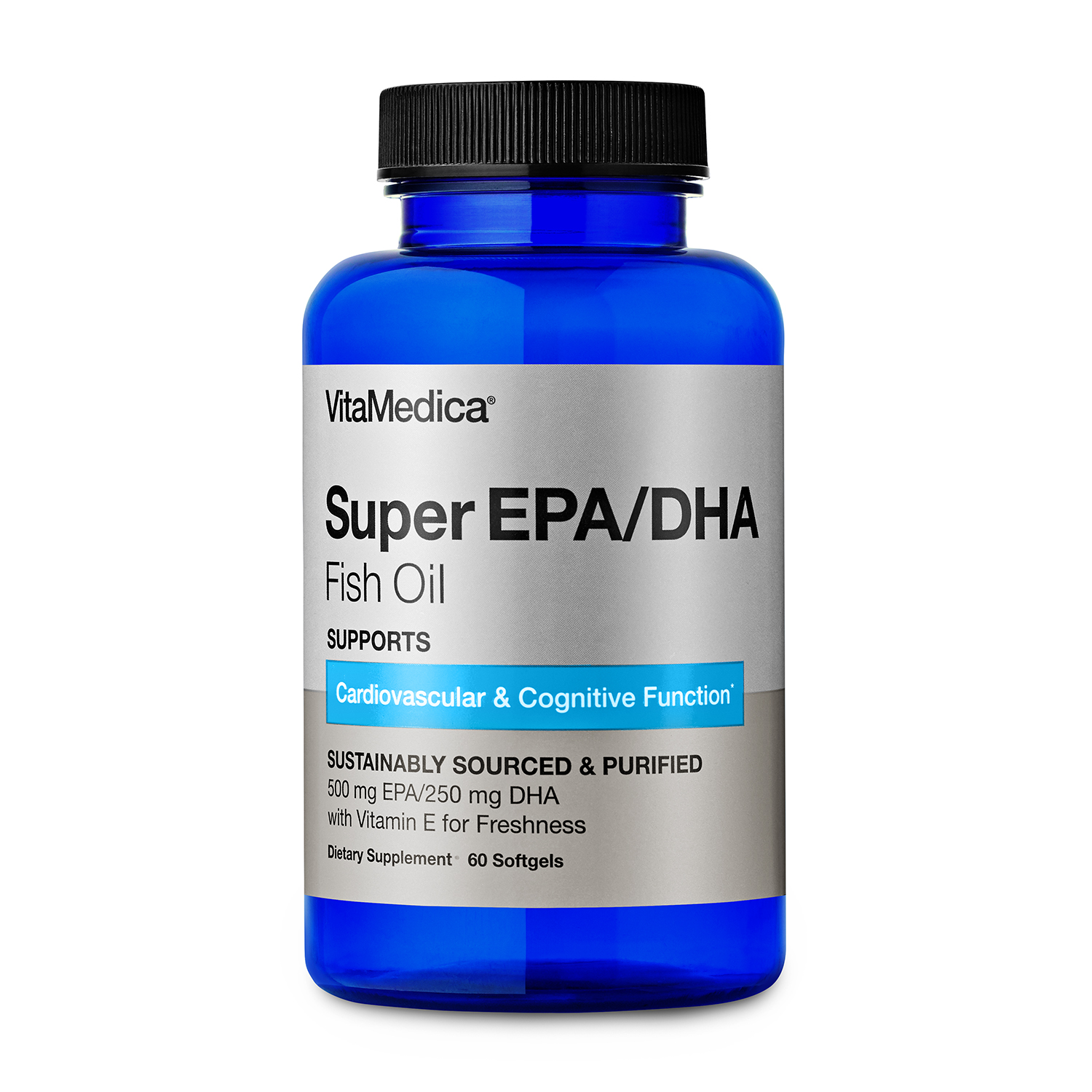VITAMINS & SUPPLEMENTS FOR ACNE THAT CLEAR SKIN NATURALLY
Regardless of sex, age or skin type, acne seems to affect all of us at some point. For those over 40 and presumably past the “perils of puberty” acne is even more frustrating because environmental skin damage and dryness often complicate the situation.
Since acne is multi-factorial, addressing the skin problem from different angles including diet & lifestyle, acne vitamins or supplements, medications, professional skin care products and treatments is often required to obtain the best results.
Causes of Acne
To appreciate the role of acne vitamins in the treatment of acne, it is helpful to first understand how this skin condition begins.
Acne develops in a structure of the skin called the pilosebaceous duct. The central canal of this unit is called the follicle, which includes a hair shaft and an opening to the skin or a pore. In the follicle are small sacs called sebaceous glands which secrete sebum, a skin and hair lubricant. The adrenal hormone testosterone stimulates the production of sebum as well as keratin, a fibrous protein that lines the follicle. In acne, these skin cells shed excessively and stick together. When combined with excess sebum, an enlarged follicle or microcomedo is formed.
The result? A non-inflammatory comeodome that when partially blocked is called a blackhead (the lipids or sebum involved oxidize and turn black); or when completely closed, is referred to as a whitehead. This environment is ideal for Propionibacterium acnes or P. acnes, a bacterium that normally reside on the skin, to proliferate.
Role of Diet & Acne
The skin has a number of functions including temperature regulation, protection of the underlying tissues, fat storage and immunity. Along with the kidneys, the skin also plays a role in eliminating toxins from the body. In fact, the skin is often referred to as the “third kidney”. The elimination of toxins through the skin can promote the development of acne. So, if your diet is not the healthiest, it makes sense that this would be reflected in your skin.
The relationship between diet and acne has garnered significant debate in the medical community. Unfortunately, it is the exception, not the rule that a dermatologist will inquire about your diet. That’s because most dermatologists believe that diet has no relationship to acne. Sadly, this belief is based on two poorly designed studies conducted over 30 years ago! Like diet, derms rarely, if ever discuss the benefit of taking supplements like acne vitamins.
More recent research indicates a relationship between diet and acne. Results from a study published in 2005 in the Journal of the American Academy of Dermatology, analyzed dated from the Nurses’ Health Study. This study, which involved almost 50,000 women, provided conclusive evidence of an association between milk intake and acne. The relationship is likely due to the hormones and other bioactives in milk which affect the pilosebaceous follicle. Perhaps more importantly, milk promotes an elevated insulin response plus as a concentrated source of calcium it impairs zinc absorption, two factors that directly influence acne development.
Loren Cordain, PhD has extensively studied the relationship of diet and acne. His work, which has been published in peer-reviewed journals like the Archives of Dermatology, strongly suggests an association between the Western diet and acne. A significant body of evidence now exists demonstrating that diet influences a number of hormones that regulate abnormal skin cell function in the follicle. In particular, diets high in refined grains; refined vegetable oils (e.g., soybean, corn or safflower oils); trans-fats and saturated fats; dairy products, whole grains and legumes, directly influence the formation of acne.
Societies that focus on a plant-based diet, with moderate amounts of lean protein and polyunsaturated fats (no dairy), have a much lower incidence of acne. Adhering to this kind of diet greatly benefits those with acne-prone skin.
Traditional Acne Treatments
Many topical treatments for the care of acne and inflammatory disorders of the skin are currently available. While effective, these regimens contain products that produce an action primarily on the outer layer of the skin. Other acne treatments, including prescription medications such as antibiotics and Accut@ne® can display potent activity but may have significant side-effects.
Although the topical approach represents the foundation of good skin care, it also makes sense to address what is going on internally. That’s because what you put inside your body may be just as important as what you apply externally. Additionally, natural medicines, including acne vitamins, tend to be milder, safer and far less likely to cause negative reactions than medications.
Key Acne Vitamins
The term “acne vitamins” is a bit of a misnomer. That’s because not only vitamins but a number of minerals and botanicals and even probiotics support a clear-looking complexion. Some nutrients support the normal shedding of skin cells while others have anti-inflammatory properties. In general, nutrients with antimicrobial, anti-inflammatory, anticomedogenic (doesn’t clog pores) and hormone-balancing properties are often used to support a clear complexion.
Below is a list of nutrients to look for when considering acne vitamins:
Vitamin A
Vitamin A is a fat-soluble vitamin that plays a role in skin health because it is needed for the maintenance and repair of epithelial tissue, of which the skin and mucous membranes are composed. Vitamin A stimulates growth of the base layer of the skin cells. It also helps cells to differentiate normally and gives them their structural integrity. Vitamin A plays such an important role in dermal health that many topical acne medications are derivatives of this vitamin including Tazorac®, Differin®, and Retin-A®. In acne vitamins, look for formulations that include both retinyl palmitate and a carotenoid source, providing upwards of 12,000 IUs daily.
Zinc
Zinc is a trace mineral that is essential for protein synthesis and collagen formation. Zinc is also very important for the health of the skin. Zinc is involved in the proper metabolism of testosterone, the principal hormone involved in the genesis of acne. The mineral is also involved in vitamin A function, wound healing, immune system activity, inflammatory control and tissue regeneration. In acne vitamins, look for formulations that include at least 20 mg of chelated zinc.
Selenium
Selenium is an antioxidant that works to protect other antioxidants such as vitamin E. Research has shown that a deficiency in selenium may play a role in inflammatory conditions such as eczema and psoriasis. Selenium functions in glutathione peroxidase, an enzyme which is very important in preventing the inflammation of acne. In acne vitamins, look for formulations that include at least 45 mcg of chelated selenium.
Chromium
Chromium is a trace mineral that works with insulin in the metabolism of sugar and is needed for energy. Chromium also improves glucose tolerance and enhances insulin sensitivity. This is important for some acne patients who do not metabolize sugar properly. In acne vitamins, look for formulations that include at least 150 mcg of chelated chromium.
Bromelain
Bromelain is a proteolytic enzyme (digests protein) that is extracted from the stem of the pineapple. When taken in a therapeutic dose, bromelain is helpful in reducing inflammation which often accompanies an acne flare-up. In acne vitamins, look for formulations that include at least 1,800 Milk Clotting Units per gram of bromelain.
Omega-3 Fatty Acids
Omega-3 Fatty Acids include alpha-linolenic acid, Eicosapentaenoic Acid (EPA) and Docosahexaenoic Acid (DHA). Most Americans consume too much of the Omega-6 fats which are derived from seed oils like soybean and corn. An imbalance of Omega-6 to Omega-3 fats promotes inflammation, an important component to acne development. Supplementing with one to two capsules daily of either flax seed oil or fish oil balances this ratio and dampens the pro-inflammatory compounds from developing. In fish oil supplements, look for at least 750 mg of Omega-3s per one gram capsule.
MSM
MSM or methylsulfonylmethane is a natural form of organic sulfur that is necessary for collagen synthesis. MSM is very important in building the sulfur amino acids methionine and cysteine. MSM is also a natural antiseptic that works as an antimicrobial. This compound is a natural alternative to antibiotics which are routinely prescribed to counteract acnes development. By keeping skin cells soft, MSM allows the skin to detoxify. MSM enhances tissue pliability and encourages the repair of damaged skin. In acne vitamins, look for formulations that include at least 200 mg per day of MSM.
Burdock
Burdock (Arctium lappa) root, a member of the thistle family, has traditionally been used as a blood purifier. Burdock has shown to have antibacterial activity and has been used clinically for a variety of skin problems including psoriasis, eczema, contact dermatitis and acne. Burdock is commonly found in acne vitamins.
Oregon Grape
Oregon Grape (Mahonia aquifolium) is not related to grapes; it is an evergreen shrub that gets its name from its purple clusters of berries. The root is a bitter digestive stimulant that has anti-inflammatory and antimicrobial properties. Oregon Grape is a great botanical to look for in acne vitamins.
Dandelion
Dandelion (Taraxacum officinale) leaf contains the highest vitamin A content of all greens. The flowers, roots and leaves of dandelions have been used for centuries in traditional Chinese medicine and medicinal teas, most notably for liver detoxification, as a natural diuretic and for inflammation reduction. Look for this bitter herb in acne vitamins.
Yellow Dock
Yellow Dock(Rumex crispus) has a long history of use to treat skin conditions attributed to toxins from poor digestion or poor liver function. Yellow Dock is a great botanical to look for in acne vitamins.
Probiotics
Probiotics can lessen the unwanted side-effects of taking an antibiotic – a medication often prescribed both topically and orally for acne control. The good news is that taking a probiotic will not lessen the effectiveness of antibiotic therapy. Gastrointestinal dysfunction is an important risk factor for diseases of the sebaceous glands and is correlated with their occurrence and development. Supplementing with a probiotic can normalize the digestive tract and help with acne control. Probiotic supplementation can also help inhibit the growth of harmful bacteria that release toxins.
Address Acne from Multiple Angles
Whether you’re experiencing a temporary skin eruption or trying to manage persistent acne, the best approach is to visit a skin care professional, use topicals with ingredients that treat the condition, follow a health-promoting diet and augment with acne vitamins.
Dealing with acne can be painful, frustrating, and even debilitating. But don’t lose hope! By finding the right balance of diet, lifestyle, nutrition, and treatment, you can manage this condition and have healthy, beautiful skin.













